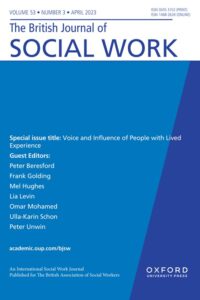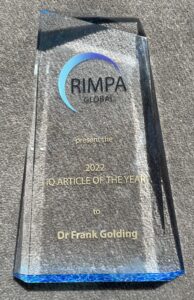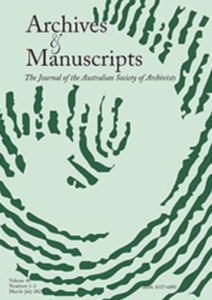Published recently in refereed journals:
- David McGinniss, Keir Reeves, & Frank Golding, (2024). Whose pain? Whose shame? Integrating heritage and histories in Ballarat, Australia. International Journal of Heritage Studies, 1–14. https://doi.org/10.1080/13527258.2024.2320319
ABSTRACT: For generations a burden of misplaced shame has sat with victim-survivors of children’s institutionalisation. Experiences and memories of family separation, cultural obliteration, mistreatment, hunger, unpaid labour, curtailed educational and professional opportunities, and abuse had come to silently de!ne and destroy the lifelong living experience of childhood incarceration. Meanwhile, institutions and the communities they are part of have been able to e”ectively ignore the legacies of their own trespasses, through ‘top-down’, celebratory approaches to history and heritage. In recent decades, renewed emphasis on survivor voices and agency has culminated in a range of Commonwealth and state-based reports, Inquiries and Commissions, driven by abundant survivor testimonies and truth-telling. The sense of shame and guilt over these parts of our collective histories has now re-centred on the perpetrators and enablers of abuse and mistreatment. Using interpretive heritage and historical lens this article outlines a theoretical conception of ‘integrated’ approaches to history and heritage, using real-life examples from contemporary urban development and institutional heritage in the regional Australian city of Ballarat. The authors examine changing contemporary representations of institutional Care, neglect and abuse, arguing that shifting cultural and social power is re#ected in the urban landscape and cultural fabric of the associated institutions.
- The Special Issue of the British Journal of Social Work on Lived Experience was published April 2023. From 2021, I worked with Peter Beresford (Co-Chair of Shaping Our Lives and Visiting Professor at the University of East Anglia), Mel Hughes (Research Centre for Seldom Heard Voices, Bournemouth University), Lia Levin (Tel Aviv University, Israel), Omar Mahomed (Social Worker, Lecturer and Researcher), Ulla-Karin Schon (Stoc
 kholm University, Sweden), and Peter Unwin (University of Worcester) to bring together a large range of academic articles and reflective pieces as well as creative artefacts for a special edition of this prestigious journal published by Oxford University Press for the British Association of Social Workers. The six Guest Editors worked as a team to seek items for inclusion and then to work with the authors/creators to bring their work to publication stage. In Australia, I was greatly assisted by Michaela Hart and Violet Hamence-Davies.
kholm University, Sweden), and Peter Unwin (University of Worcester) to bring together a large range of academic articles and reflective pieces as well as creative artefacts for a special edition of this prestigious journal published by Oxford University Press for the British Association of Social Workers. The six Guest Editors worked as a team to seek items for inclusion and then to work with the authors/creators to bring their work to publication stage. In Australia, I was greatly assisted by Michaela Hart and Violet Hamence-Davies.
- Frank Golding, (2022). Whose history is it, anyway? IQ: The RIMPA Quarterly Magazine, 38(3), 34–36. https://search.informit.org/doi/10.3316/informit.617360569134258 This article won the Rimpa Global 2022 Article of the Year
Abstract: The codification of children’s rights extends back to the early decades of the 20th century. At the very time I was learning to read in a school enclosed within the Ballarat Orphanage, Australia was helping to draft the Universal Declaration of Human Rights 1948. “The family is the natural and fundamental group unit of society,” it declared, “and is entitled to protection by society and the State”. When the UN Convention on the Rights of the Child came into being in 1989, I had long gone from out-of-home Care (OOHC) and had children of my own. Had they been placed in OOHC (heaven forbid), they would-in theory-have the right to maintain contact with their family, and the right to participate in decisions that affect them.
- Frank Golding, Sue McKemmish, & Barbara Reed, (2021). Towards Transformative Practice in Our of Home Care: Chartering Rights in Recordkeeping, Archives and Manuscripts, published online 4 August 2021. https://doi.org/10.1080/01576895.2021.1954041
- Frank Golding, Nina Lewis, Sue McKemmish, Greg Rolan, Kirsten Thorpe (2020) Rights in Records: A Charter of Lifelong Rights in Childhood Recordkeeping in Out-of-Home Care for Australian and Indigenous Australian Children and Care Leavers, The International Journal of Human Rights online (Manuscript ID FJHR-2020-0121.R1).
- Philip Mendes, Jacqueline Z Wilson, Frank Golding (2020). Child Protection Hypothetical Case Studies for a Virtual Archive: Professional Perspectives Versus the Lived Experience and Expertise of Care Leavers in Victoria, Australia. British Journal of Social Work, bcaa018, https://doi.org/10.1093/bjsw/bcaa018. Published: 07 April 2020.
- Sue McKemmish, Frank Golding, et al. (2019). Decolonizing recordkeeping and archival praxis in childhood out-of-home Care and indigenous archival collections, Archival Science, August 2019.
- Frank Golding (2019). “‘Problems with records and recordkeeping practices are not confined to the past’: a challenge from the Royal Commission”, a paper delivered at Community Informatics Research Network Conference 24-28 October 2018, Monash Centre, Prato, Italy. Now published in Archival Science, April 2019. A preliminary draft is at https://www.conftool.net/prato2018/index.php?page=submissions
- Frank Golding (2019). Some survivors are more equal than others: Unintended consequences of a royal commission. Paper delivered at the Biennial Conference of the Society for the History of Children and Youth Conference 2019: Encounters and Exchanges, 26-28 June, Australian Catholic University, Sydney.
- Rolan, G., Evans, J., Bone, J., Lewis, A., Golding, F., Wilson, J. Z., McKemmish, S., Mendes, P., Reeves, K. (2018). Weapons of Affect: the imperative for transdisciplinary Information Systems design. In 81st ASIS&T Annual Meeting Proceedings (pp. 436–445). Vancouver: Association for Information Science and Technology.
- Frank Golding (2018). “Sexual Abuse as the Core Transgression of Childhood Innocence: Unintended Consequences for Care Leavers”, Journal of Australian Studies, 42:2, 191-203 (A special issue on the Royal Commission into Child Sexual Abuse, edited by Katie Wright, Shurlee Swain & Kathleen Philips). Available at: https://www.tandfonline.com/action/showCitFormats?doi=10.1080%2F14443058.2018.1445121
NEWS FLASH: The above article along with all the other articles in this Issue of the Journal of Australian Studies – a special issue on the Royal Commission on Institutional Responses to Child Sexual Abuse – is being republished as a book later this year. The title of the book is: Confronting the Past, Shaping the Future: The Australian Royal Commission into Institutional Responses to Child Sexual Abuse. I’ll post details when I have them.
- Jacqueline Z. Wilson, Philip Mendes & Frank Golding (2018). “Hope Street: From Voice to Agency forCare-Leavers in Higher Education”, Life Writing, 15:4, 597-609, DOI: 10.1080/14484528.2018.1427420. Available at: https://www.tandfonline.com/action/showCitFormats?doi=10.1080%2F14484528.2018.1427420
- Leonie Sheedy, Vlad Selakovic & Frank Golding, in conversation with David Denborough (2017). “So you are accessing your file? You are not alone”, International Journal of Narrative Therapy and Community Work, No. 4: 89-94. Available at: https://dulwichcentre.com.au/product-category/2017/2017-issue-4/
- Jacqueline Wilson & Frank Golding (2017). “The tacit semantics of ‘Loud Fences’: tracing the connections between activism, heritage and new histories”, International Journal of Heritage Studies, Vol. 24, No. 8, 861-873. Available at: https://www.tandfonline.com/doi/abs/10.1080/13527258.2017.1325767?journalCode=rjhs20 DOI: 10.1080/13527258.2017.1325767.
- Frank Golding (2017). “The Care Leaver’s perspective”, Archives and Manuscripts, 44:3, 160-164, Available at: https://www.tandfonline.com/action/showCitFormats?doi=10.1080%2F01576895.2016.1266954 (published online January 2017 – also available as oral presentation on YouTube).
- Jacqueline Z. Wilson & Frank Golding (2016). “Latent scrutiny: Personal Archives as Perpetual Mementos of the Official Gaze”, Archival Science, Vol. 16, No. 1: pp 93-109 First published on line October 2015, DOI 10.1007/s10502-015-9255-3. Available at:https://link.springer.com/article/10.1007/s10502-015-9255-3
Extracts from the anonymous referees’ reports show that increasingly people in a range of disciplines are beginning to appreciate the issues confronting survivors of institutional ‘care’:
Reviewer #1: This is a remarkable and extremely important paper. It is certainly a paper of its time and its difficult to conceive of such a paper being presented to an academic archival journal even five years ago. It is a critical story that needs to be told and the authors have taken what I see as an unprecedented step in telling their own stories in a public academic forum to enable both the intellectual and professional discourse in archival science to confront a reality that is almost impossible to relate from the archivist perspective.
Reviewer #2: …this article is articulate, interesting and does an effective job of communicating the affective and life altering ramifications of Care leaver files. In addition, its use of the author’s own experiences as examples of the impact of the writing of distorted narratives is well balanced with the contextual aspects of the piece…
- Frank Golding, Cate O’Neill & Natasha Story (2013). “Improving Access to Victoria’s Historical Child Welfare Records”, Provenance: the journal of the Public Records Office Victoria, Issue 12. Available at: https://www.prov.vic.gov.au/explore-collection/provenance-journal/provenance-2013/improving-access-victorias-historical-child

